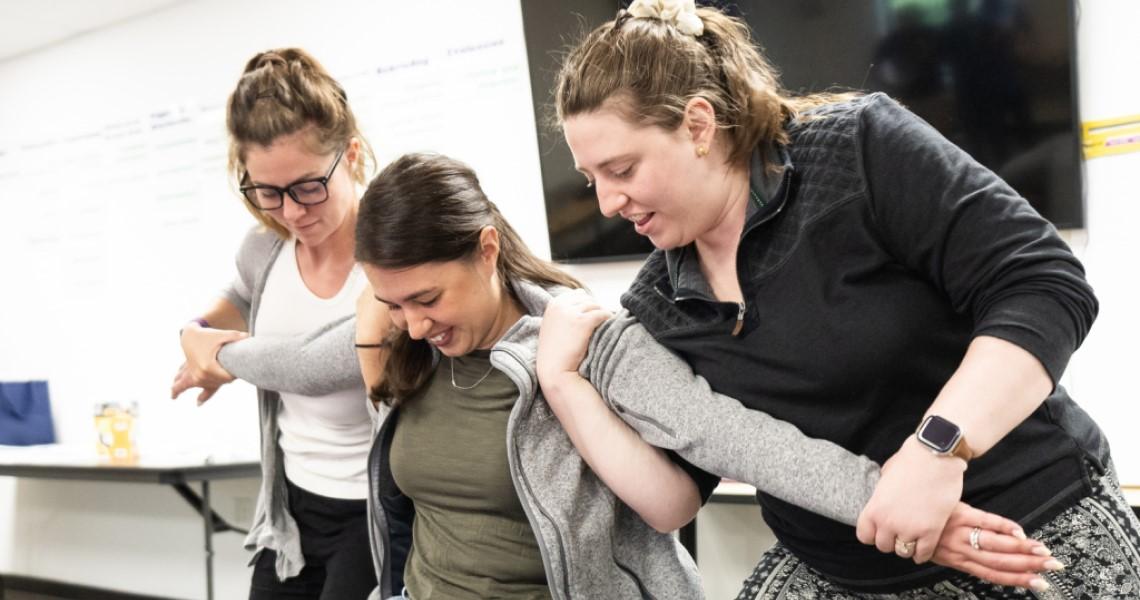Ensuring the safety of all our staff is an urgent priority, particularly in the wake of a national rise in workplace violence during the pandemic. Many of our nurses became the face of this challenge, sharing their stories through a nationally recognized campaign entitled End the Silence on Health Care Violence.
Over the past two years, UVM Medical Center has increased the visibility of security personnel, rolled out new reporting tools and provided education on de-escalation strategies. These efforts are complemented by support from the Nursing Excellence Champions, who help raise awareness of available safety resources.
Meanwhile, a growing collection of training programs are helping all staff to feel safer at work, more supported in the aftermath of traumatic events and engaged in follow-up decisions. Programs like MOAB, Professional Assault and Crisis Training (Pro-ACT), Code ASSIST and Trauma-informed care education are now available to all staff.
Spotlight on Code ASSIST
Born from an urgent need, the Code ASSIST (All Staff Support in Stressful Times) program is transforming how our health care staff support one another. Co-created by Amanda Young, RN, Andrew Gregg, an interfaith chaplain, and Debra Niemasz, LICSW, the program seeks to support staff on the verge of burnout or coping with traumatic and challenging situations of all kinds. “We realized there were gaps in how we support staff and not just after challenging clinical events,” says Young.
Launched in late 2023 with a grant from the UVM Medical Center Foundation, Code ASSIST trains staff in trauma-informed care, micro-debriefing and self-care. “I’m always worried people think it’s just about assault or abusive language,” Young explains. “This work is meant to support people through anything difficult.”
So far, the program has trained over 230 staff members across departments – from nurses and security to environmental services and call center leaders – with a goal of training 700 by October 2025.
Gregg emphasized the power of peer-to-peer support: “You’re more likely to accept support from someone you know. It helps formalize the experience without needing a clinical intervention. The curriculum is useful from the bedside to the phone.”
Code ASSIST’s impact is gaining national attention. In April, Young and Gregg presented at the American Organization for Nursing Leadership conference, where their interdisciplinary, peer-driven model stood out. “The response was overwhelming,” says Gregg. “We want to help as many people as we can.”
These initiatives directly support the Safety standard in the Pathway to Excellence framework, which ensures that nurses have the protection and protocols necessary to feel secure in their roles. They also address the Well-Being standard by acknowledging the emotional toll of unsafe environments and actively promoting workplace wellness and resilience
